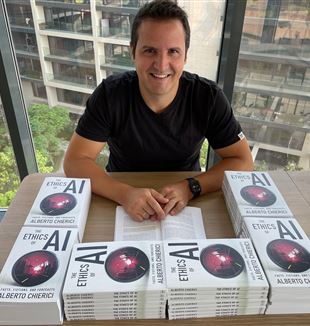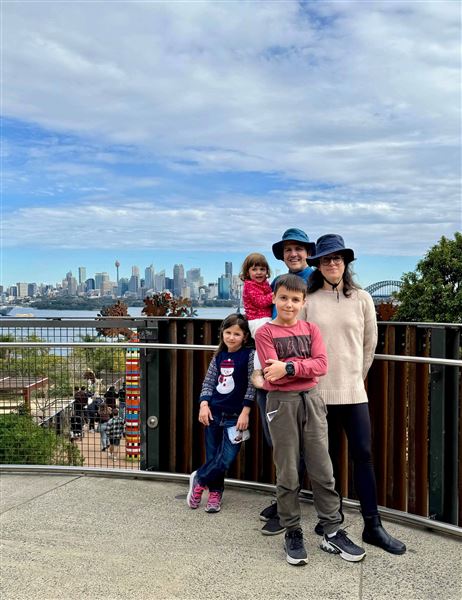
The Ethics of AI
A new book on AI places morality and ethics at the centre of its reflection on the latest revolution in data science. The author moved recently to Sydney and found a receptive audience for this new approach.‘I am a Roman Catholic and my approach to the ethical dimensions of AI is grounded in the understanding of the human person my faith teaches me, in a Christian anthropology.’ This is not the normal opening you expect at an AI + Data Science Meetup. But it had an unexpected and positive outcome.
The speaker, Alberto, had just moved to Sydney and decided the best way to introduce himself to the AI community was to tell it straight. Sydney was an improbable destination. Moving to London after graduating at Milan State Uni, he spent eight dynamic years in London working as an actuary but breaking out with a number of start-ups, one of which is still running. Then, his wife Laura won a research fellowship in theoretical physics at the Abu Dhabi campus of New York University.
In Abu Dhabi, their third child was born and, while they loved the lifestyle of the expat community, they knew that as the children approached teenage years it would be wise to move again. Growing children would need to learn to move outside the comfortable and protected environment of the expat community into the world beyond. After six years, an equally unexpected opportunity brought Laura to the University of Sydney. Alberto had completed a NYU PhD in machine learning in Abu Dhabi and was aware that Australia was underperforming in the AI space. So for him the move opened more questions than answers, but he and Laura discerned that, if life is about being sent, this new opportunity was the way in which they were being sent.
The move turned out easier than expected. They discovered old friends from school days in Milan and the local CL community embraced the new arrivals. The children adapted quickly to the change, slipping quickly into the open lifestyle, intrigued by the easy-going Australian accent.
While in the Emirates Alberto had also published The Ethics of AI: Facts, Fictions, and Forecasts, a well-received book that outlines the history of AI and the possibilities it offers for improving individual and collective life.
What sets the book apart is that front and centre of the evaluation of AI and its future applications is an approach built on morality and ethics. ‘Why?’ is more important than ‘What?’ It is more truly human to ask ‘Should we?’ rather than ‘Can we?’ The criterion is always the good of the human person. But this means the starting point in deciding which development routes to take and then evaluating technological possibilities must be our understanding of the human person. What is the value of the person? Is the human being the sum total of what happens in their brain, a series of wants and needs to be satisfied, a cog in the mechanism we call society, or a unique being with dignity and value in and of itself?
This is the approach that was expressed with authority recently by Pope Francis in his address to world leaders at the G7 summit. The pontiff urged industry leaders to ‘put the dignity of the human person back at the centre, in light of a shared ethical proposal’.
Because the Emirates is a religious state, Alberto maintains that, within certain limits, it is easy to be a Catholic there. Easier perhaps in Christian or post-Christian Europe. Or Australia.
Still, his Sydney talk on the ethics of AI – with the unambiguous religious identity in the opening – made a big impression. Two members of the audience were so intrigued by this original and courageous approach that they spoke with him afterwards and ended up offering him a job. He starts next week, with a non-profit researching the ethical implications of AI developments and consulting to government, banks and big business.